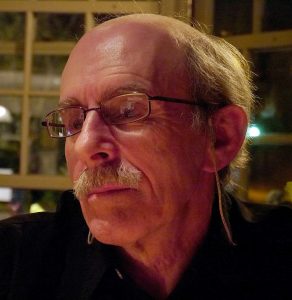
About Clive Warner:
Writing is my passion, but I began as a fanatical reader. Like most of my (pre Internet) generation, books came before movies, TV, and even radio. And so our world desires were fed by our imaginations and moulded by the books we read, and this imaginative fire is what I want to read, and what I want to write – for you.
I've lived and worked in so many different parts of the world that you're as likely to find yourself in Nigeria or Yemen, or 300 years in the future, or in the past, taking part in a war, as on home ground.
The other big parts of my life are my family and my dogs, a pair of rescued Springer spaniels.
What inspires you to write?
I want my readers to have the same admiration for my work as I have for those novelists who have inspired me, and so I strive to write the very best prose I can. That's what I would say without thinking between the lines. The truth though, is that I want people to remember me by my work, after I cease to exist in the present.
Tell us about your writing process.
When I first began crafting novels I thought that a story had to be structurally planned. In other words, in chapter 5 the terrorist makes a mistake and in chapter 6 gets caught (and so on). I know that many writers find that this method works for them. It doesn't work for me because if I walk characters through a plot, they become cardboard cut-outs. When I write, I visualise my character(s) in the setting, then press "play" and watch them interacting according to the needs and desires I sketched out for them. So, I am a character-driven writer.
For Fiction Writers: Do you listen (or talk to) to your characters?
I don't talk to my characters because they are in their world not mine, but I watch and listen (and smell and touch) as if I am taking part in their virtual reality.
What advice would you give other writers?
There are many problems to overcome but each one can be surmounted using the appropriate tools or help from the writing community. Writer's critique groups are a wonderful thing – provided you have the ability to accept honest criticism and the wisdom to laugh off the occasional nasty critique. I spent several years on a novels critique group, and without that experience I doubt that I would ever have been able to write a complete, satisfying story.
There are some great tools available – for instance Christopher Vogler's book, The Writer's Journey, says that most stories can be boiled down to a series of narrative structures and character archetypes. He analyses plenty of stories and though it's more true for some genres than others, for 'Quest' type stories it is ideal. There are books that can help you write (eg) horror, crime, mystery … now that everything is so connected, nobody needs to go and physically live in a 'writers community' any more, in order to hone the work against the critical review of others. These days we have the Net. Above anything else though: get it edited. It is all too easy to publish what appeared in the heat of the moment, to be the literary work of the century – only to receive brickbat reviews mocking the poorly written, unedited, weirdly formatted work.
How did you decide how to publish your books?
Since 2002 until now, the industry has changed out of all recognition. In 2002 my first novel (now out of circulation) was published by a small publisher based in Florida. Neither they nor I knew much about how to market books and it didn't do very well. Fast forward fifteen years, and it's obvious that absolutely everything to do with publishing, has changed.
The chances, let's be honest, of attracting an agent are pretty small (unless you have some special mojo going for you – eg you're a celebrity, notorious, whatever). And so, better I think to either self publish or see if you can attract a small publisher to publish your book. In the case of self publishing, you need to buy in services from outside, such as cover art, fontwork and layout, EBook formatting, etc. without which, your book will look amateurish. Unless you're absolutely strapped for money, have original artwork digitally painted for the front cover. Cheap generic covers don't flatter your content.
What do you think about the future of book publishing?
I think that we're approaching an information overload stage in which it becomes increasingly difficult to get any kind of attention for a new release – unless of course, it's both well publicised and controversial. Bloggers / Vloggers and social media marketing will continue to take market influence away from more traditional publishing outlets.
What do you use?: Professional Editor, Professional Cover Designer, Beta Readers
What genres do you write?: literature, SF, action-adventure, satire, memoir, nonfiction
What formats are your books in?: eBook, Print
Website(s)
Clive Warner Home Page Link
Link To Clive Warner Page On Amazon
All information in this post is presented “as is” supplied by the author. We don’t edit to allow you the reader to hear the author in their own voice.
